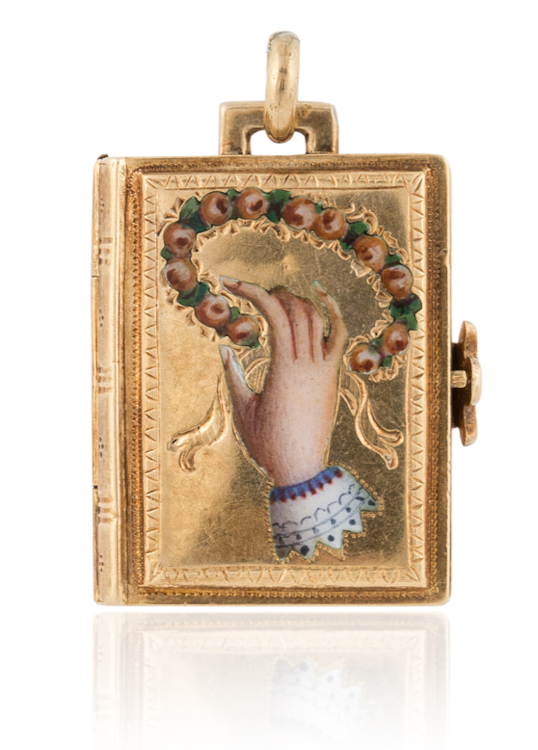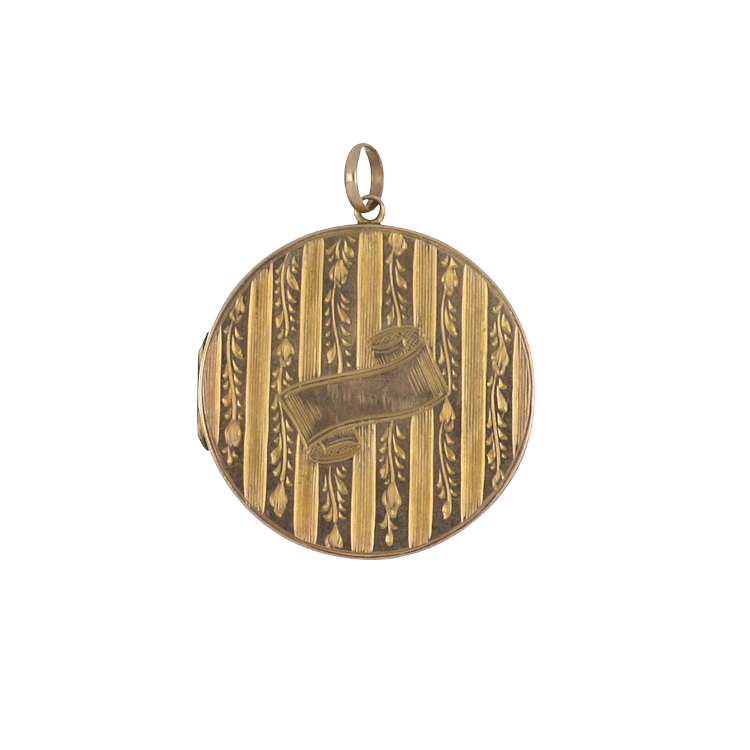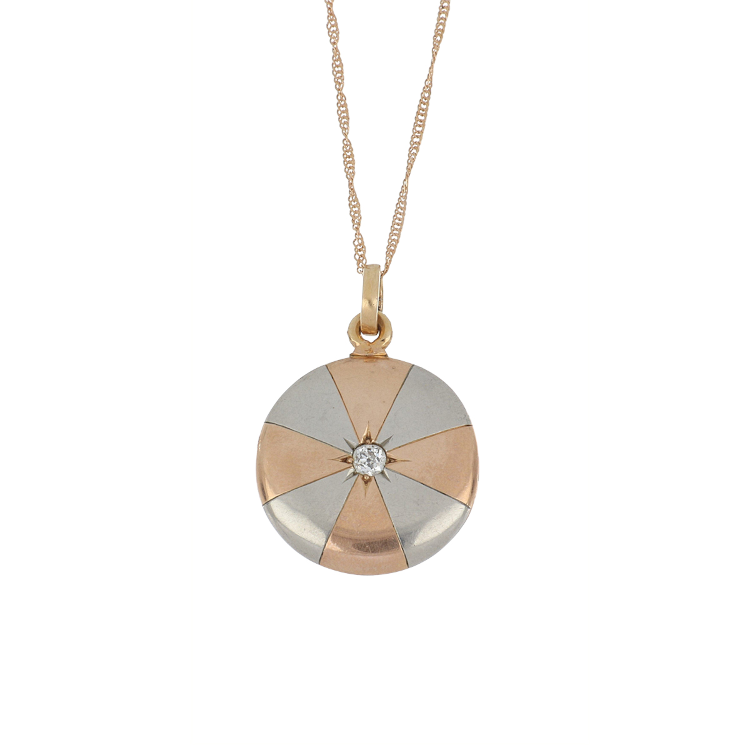When did lockets first appear?
Lockets have been popular for more than five centuries because of their sentimental nature. Whether it was for mourning, as was the traditional use, or for romance, like more contemporary designs, there is a great sentimental appeal to a locket. They are like tiny pockets for carrying a precious and tiny “talisman” of some sort — perhaps a lock of hair or a portrait miniature. Sometimes the locket is on the reverse of a piece of jewelry (referred to as en verso). More recently, lockets have been made to carry photographs — which, in our digital age, is certainly anachronistic.
The earliest example I have seen isn’t a traditional locket at all, but a Stuart-crystal slide. Stuart crystals are a faceted rock crystal top that covers a fragile design with a gold backing. Usually for mourning, the designs were traditionally a version of a hairwork background with a gold cipher on top. Technically, these are lockets, and while not able to open or close, they certainly made a sentimental statement.

What has helped lockets remain relevant?
Lockets, having a substantial flat surface, were a perfect surface for metal engraving and chasing. The details can be breathtaking, with delicate precision. Older pieces are worn to a satiny finish. With chasing, the metal is simply moved around, but with engraving, the excess metal is removed. You might be able to see or feel it on the locket [if you’re trying] to identify the difference.
In my opinion, the most timeless are the Victorian silver lockets with rose gold overlay on book chains. These tend to be slightly more generous in scale and size, and the price is also more reasonable. They are durable and beautiful, and if on the original book chain, they don’t migrate or move around once they’re on the neck.
Victorian revival lockets in gold with engraving are often heart-shaped. They are classic and easy to incorporate into a modern jewelry wardrobe. Nowadays, I see many [of these] worn clustered on longer chains with other sentimental charms and talismans.

Which eras and countries of origin stand out for collectors?
Shakudo and shibayama pieces from Japan. Originally used to decorate samurai garb and later made for European export in the 19th century, shakudo [designs are] very distinctive, with a blue-black base topped with mixed-metal motifs, and very collectible. If you are very lucky, you can find one of these items with the early craftsmanship
but in a wearable form like a locket.
Shibayama is a lacquer with an organic inlay — ivory or mother-of-pearl, for example — with a high-relief design, and its heyday coincides with the production of shakudo. To find either construction in good condition is unusual; to find both techniques in one piece, even more so.

Do older examples need extra care or repair?
Lockets can be complicated, because in most cases, you cannot get them wet. Whether they carry a lock of hair, an ivory portrait, or a photograph, they are not sealed to be waterproof, so you need to exercise care, whether it is modern or antique. The nicest and most coveted lockets are difficult to find, and only by being on a constant hunt can you procure them at all. I buy jewelry all day from people, but in many cases, people are reluctant to part with a locket due to the sentimental nature of the piece.


Who is Cristina Mattern?
Cristina Mattern joined Tenenbaum Jewelers in Houston, Texas, as director of acquisitions in 2016. She has a graduate gemologist degree from the Gemological Institute of America (GIA) and has devoted herself for the past 25 years to the magic of antique and estate jewelry, posting about the topic weekly on social media.
Left image: Cristina Mattern. (Tenenbaum Jewelers)
Main image: A mourning slide in Stuart crystal and 18-karat yellow gold, circa 1700, holding an initialed ode to a lost loved one. (Tenenbaum Jewelers)
Source link
